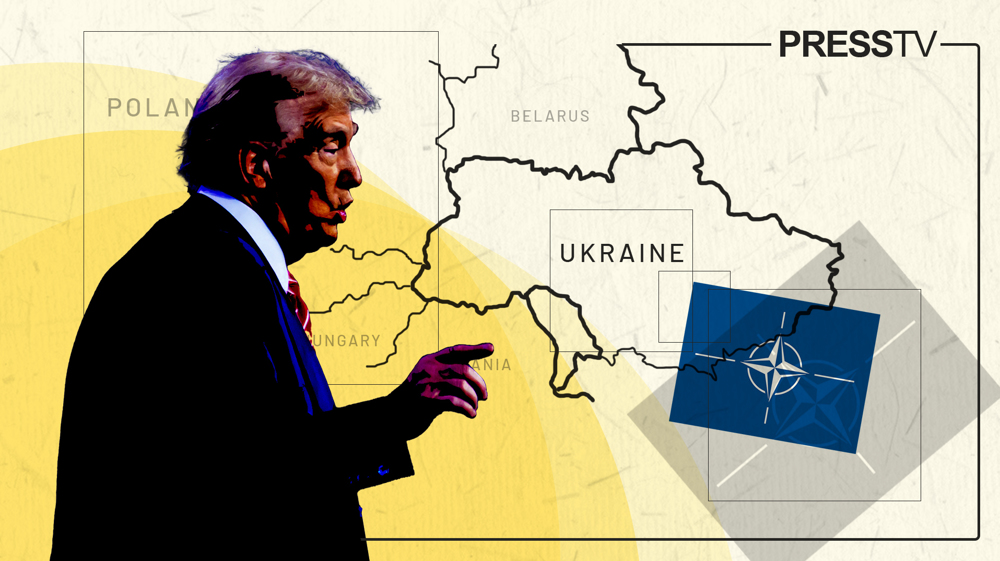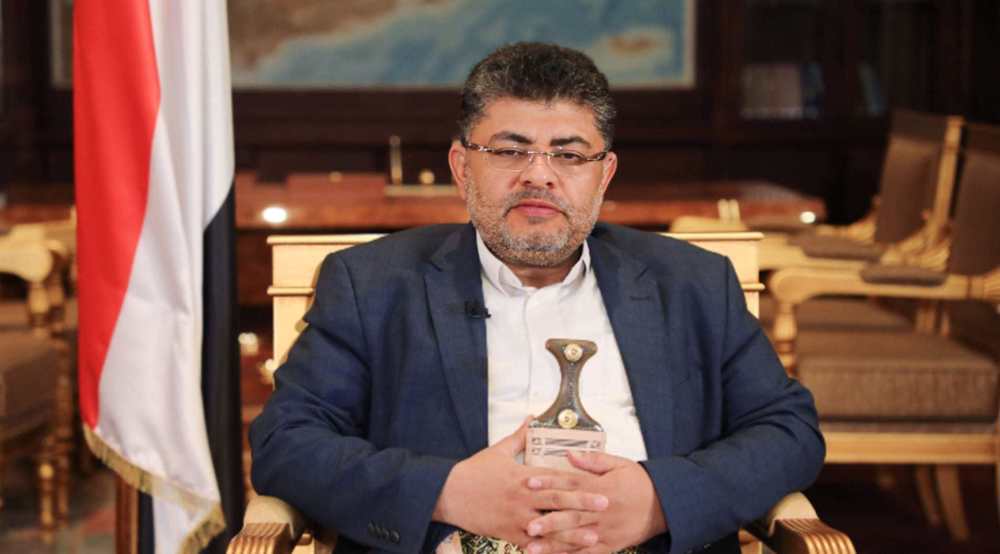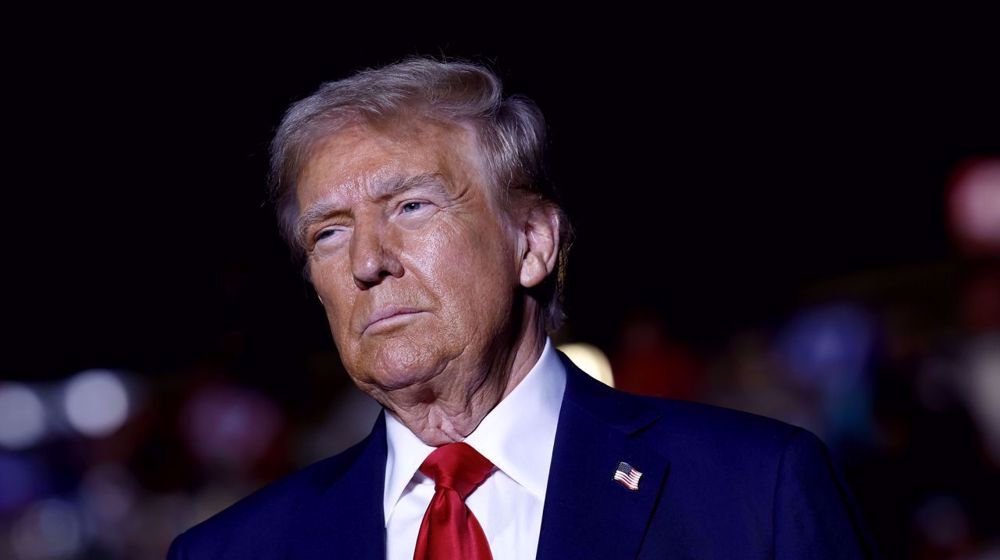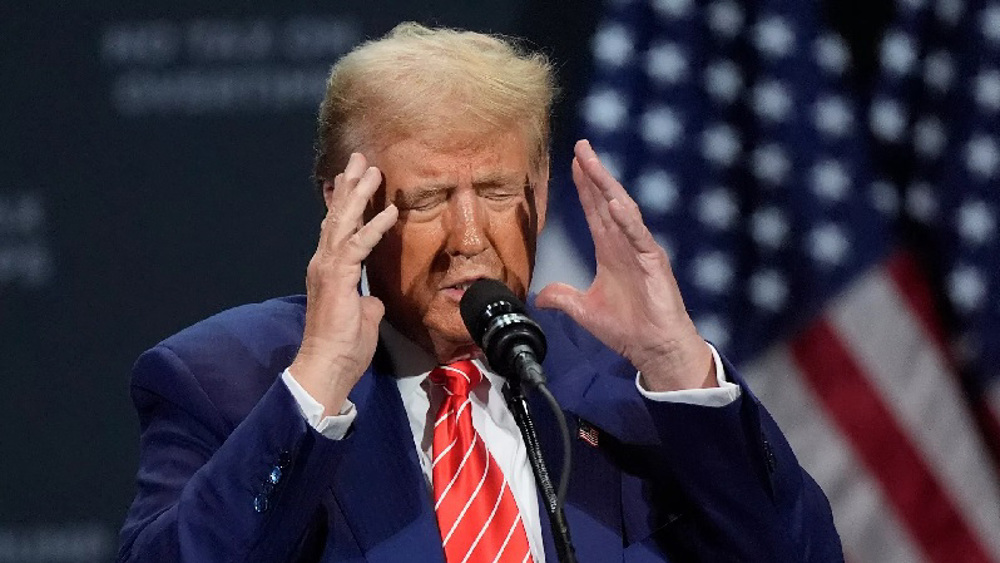Trump’s return and its possible implications on Ukraine war, NATO and Europe
By Peyman Hassani
Donald Trump has returned to the US political stage at a time when the world is entangled in active and potential crises on multiple fronts. The genocidal war in Gaza and the protracted conflict in Ukraine stand out as pressing challenges, remnants of the Joe Biden era.
Meanwhile, tensions between arch-foes China and the United States over Taiwan remain in a delicate and precarious state.
Broadly speaking, American foreign policy can be divided into two major schools of thought. The first is the "internationalists," who advocate for the country's active involvement in global affairs and international issues.
This group views US intervention in various regions worldwide as a duty and a strategic necessity. This perspective fosters the formation of coalitions and alliances to advance American hegemonic interests while sharing the costs of foreign policy with partner nations.
Evidence of this approach can be seen in the country’s strategic relationships with Japan and India, its recent joint military exercises with Japan and South Korea, and its broader alliances with emerging world powers.
The carefully choreographed projects such as “War on Terror” or “Export of Democracy” exemplify this distorted worldview ingrained in American foreign policy.
In contrast, the "isolationists" occupy the opposite end of the US foreign policy spectrum.
This perspective finds its roots in the Monroe Doctrine and is predominantly embraced by US conservatives. The isolationist ideology gave rise to the "America First" slogan, which gained significant traction, especially during the previous Trump administration.
Sometimes intertwined with a mercantilist outlook, as seen prominently during Trump's tenure, isolationism emphasizes domestic priorities and energy.
While this approach aims to maximize national interests in foreign policy, it avoids bearing additional costs associated with international commitments
In a nutshell: Trump & peace
— Press TV 🔻 (@PressTV) December 17, 2024
Some media outlets in the US are attempting to portray Donald Trump as opposed to wars. We do not need to look beyond the facts of his record to know.
Follow us on Telegram: https://t.co/B3zXG73Jym pic.twitter.com/EdDY5FPOEK
Isolationists are characterized by their reluctance to maintain alliances and coalitions, often leading to a weakening or disintegration of America's partnerships abroad.
During the Trump era, this approach became evident as the US disengaged from many international obligations, favoring bilateral agreements and transactional diplomacy over multilateral cooperation.
During Trump's previous presidency, he frequently demanded financial contributions from other countries in exchange for providing security.
The isolationist attitude in the United States, unlike the internationalist approach, fundamentally rejects international cooperation, alliances, and support for other nations.
During Trump’s first administration, growing divisions between the United States and the European Union became increasingly apparent, culminating in threats to withdraw from the NATO military alliance treaty.
Trump argued that the United States had no obligation to ensure the security of other nations in the NATO fold without receiving appropriate compensation.
In contrast, during the Biden administration, there was a notable convergence between the United States and Europe, largely due to Russia's “special operation” in Ukraine.
The outbreak of the Ukraine war in February 2022 further bridged gaps across the Pacific. The alignment between the United States and the European Union deepened significantly as they united in opposition to the perceived "enemy in Moscow."
The ongoing Israeli genocidal war on Gaza, the full support of the Hezbollah resistance movement for Palestine, and the broader Axis of Resistance have introduced new dynamics.
Additionally, Iran’s retaliatory military operations targeting the heart of the Zionist entity on two occasions have created further complications in the US foreign policy.
Europe, which had already categorized Iran as an adversary in the Ukraine war under the false pretext of supplying equipment to Russia, has once again adopted a stricter and more hostile stance toward the Islamic Republic.
Explainer: What are the implications of Trump’s cabinet picks for Palestinians? pic.twitter.com/IokygbYwqs
— Press TV 🔻 (@PressTV) November 18, 2024
A clear illustration of this is the joint statement issued by the European Union and the Persian Gulf countries, where Europe explicitly and, for the first time, accused Iran of "occupying" the three islands that belong to Iran.
This baseless claim disregards all documented evidence that affirms Iran’s sovereignty over the islands of Abu Musa, Greater Tunb and Lesser Tunb.
It appears that, unlike during Trump’s first administration, which saw the emergence of significant rifts between Europe and the United States, these divisions may be less pronounced in the future due to external factors such as those mentioned above.
The United States and the European Union are likely to set aside their differences, at least temporarily, until the crises of the Ukrainian war and the genocide in Gaza are resolved.
During this period, they may adopt a rhetorical yet unconstructive policy. Supporting this prediction is the European Union's recent efforts to activate the snapback mechanism against Iran in cooperation with the United States.
The snapback mechanism is a legal provision to reinstate UN Security Council resolutions that were lifted following the Joint Comprehensive Plan of Action (JCPOA) agreement.
It seems the Europeans may have overlooked the fact that Trump unilaterally withdrew from the accord. He had famously described the deal as "a horrible one-sided deal that should have never, ever been made" and added, "[i]t didn't bring calm, it didn't bring peace, and it never will."
As a result, it is anticipated that Trump’s policy toward NATO and the European Union in the second administration will be milder and more consistent than during his first term.
Furthermore, it is highly plausible that a second Trump administration might pursue an agreement with Russia to address the Ukrainian war—something that has not occurred under Biden since he aggressively backed the NATO proxy war against Russia in Ukraine.
If such an agreement materializes, there could be hope for an end to the war in the medium term. While transatlantic gaps may persist, shared adversaries could push Washington and Europe closer together.
Peyman Hassani is a researcher in international law and international relations.
(The views expressed in this article do not necessarily reflect those of Press TV.)
VIDEO | MEK trial in Tehran reveals heinous terrorist crimes
VIDEO | No Christmas in Gaza again
Iran condemns Israel’s brazen admission of Haniyeh murder
VIDEO | Conference in Islamabad explores Pakistan-Iran ties
Hamas condemns Israeli evacuation order of Indonesian Hospital
VIDEO | Yemen resistance remains resolute
'Easy target': Yemen warns 4th US carrier within reach
Iran military awarded $40 mln worth of vessel building contracts















 This makes it easy to access the Press TV website
This makes it easy to access the Press TV website